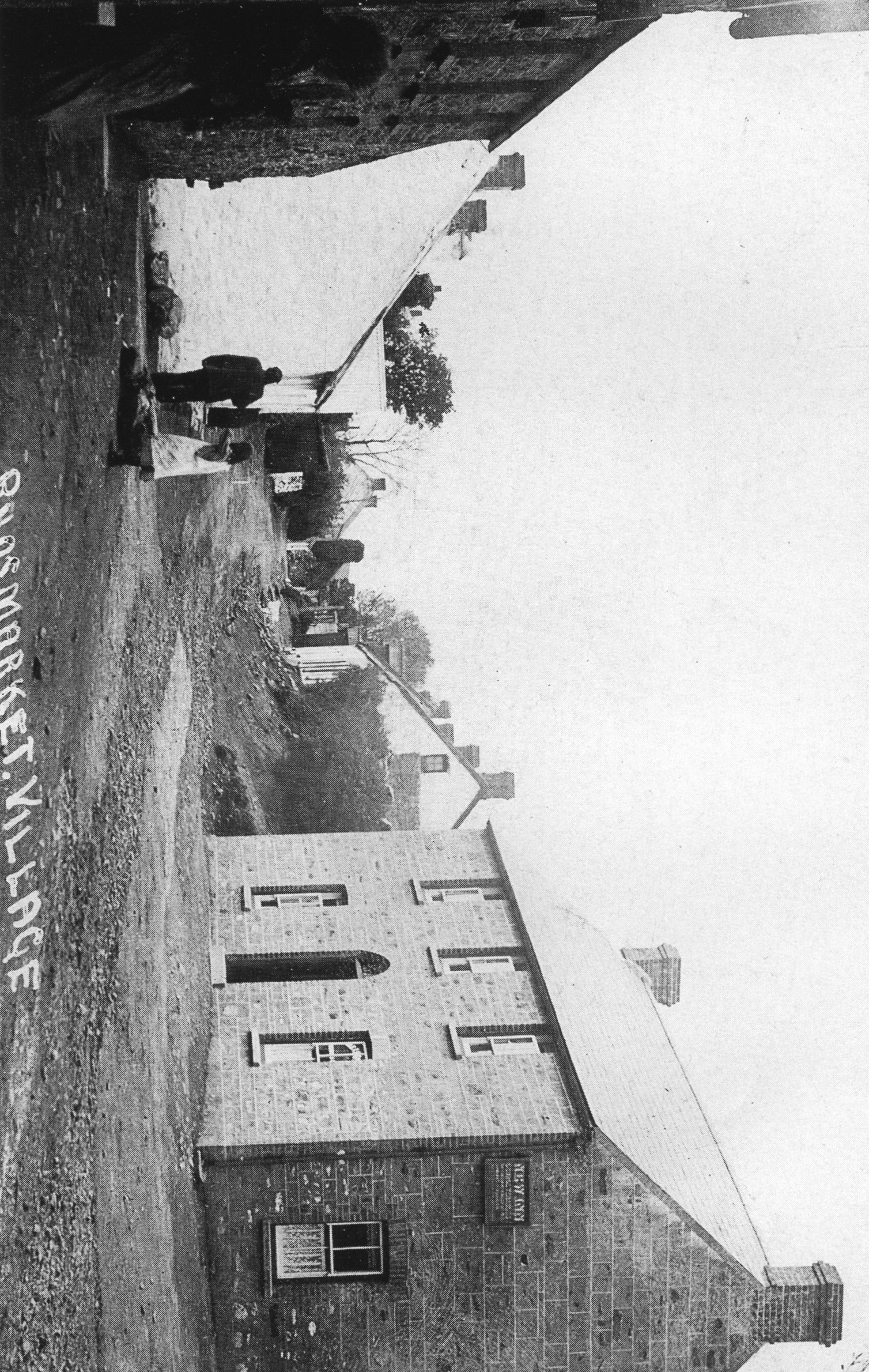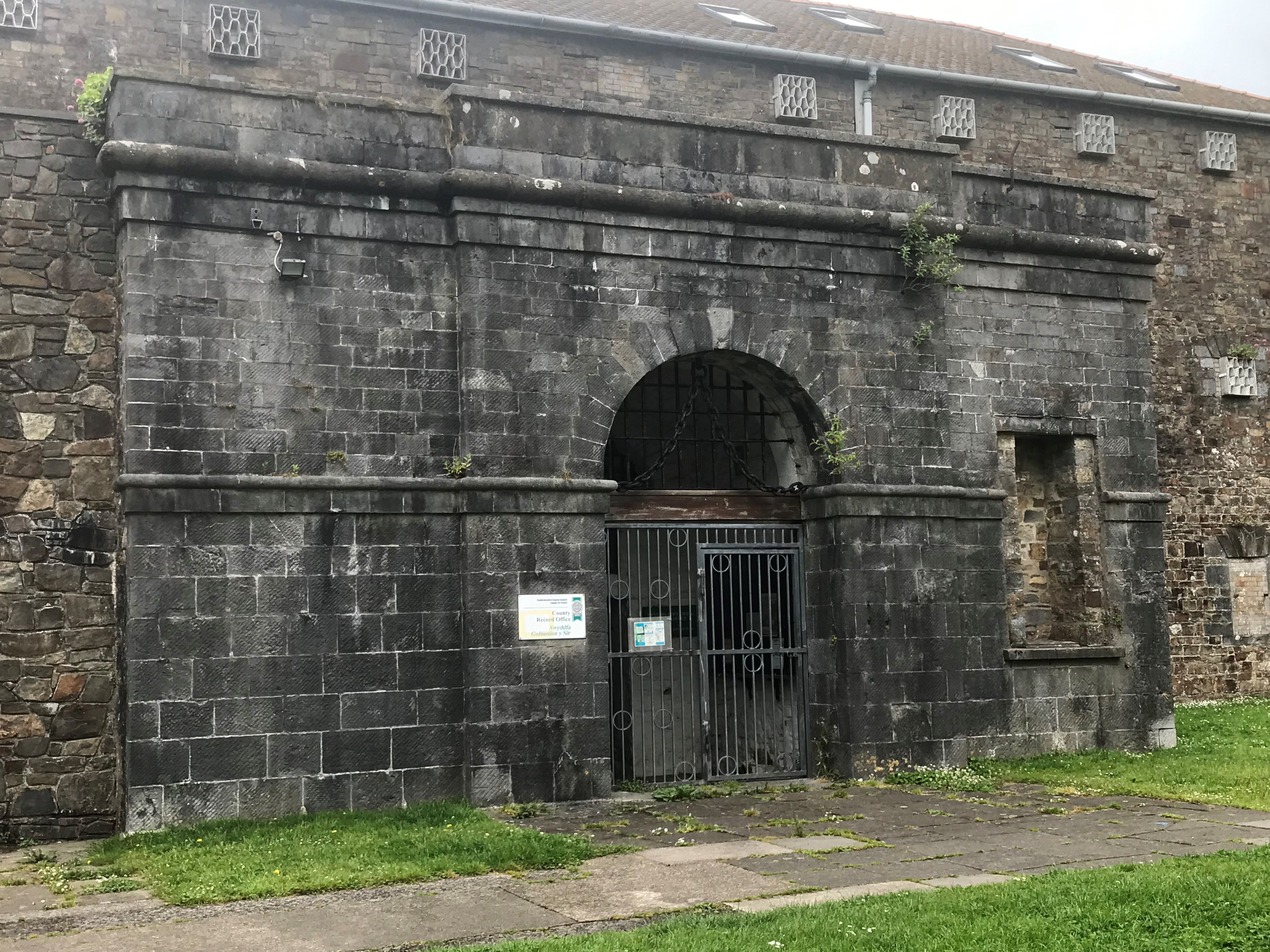Accused: William Jones
Death occurred: 5th April 1851
Location: The New Inn, Rosemarket
In 1851 a charge of murder was brought in the “quiet little Village of Rosemarket”. It was major news in the village and surrounding area, causing what was described as “a painful degree of excitement”, and was reported in a number of newspapers at the time.
The following information has been taken from extracts of newspaper articles and has been left largely unedited to show how these court cases were reported at the time. More information about the trial was reported, but the following covers the main information.
Interestingly the reporting of the trial includes a number of references to the trades within the village as well as the names of local buildings, and residents living here at the time.
MURDER AT ROSEMARKET
Last Saturday, George Phillips, Esq., was having a celebration of the coming into possession by that gentleman of the Lawrenny Estate, upon the demise of the late Sir William Owen Barlow, Bart.
On this occasion, Mr. Phillips gave away several barrels of ale at Rosemarket, and the event was signalized with bonfires and other demonstrations of joy, and being, an unusual thing in this neighbourhood, its novelty, as well as the desire to shew their respect for Mr. Phillips, caused a great number of persons to assemble, the rejoycings being kept up until a late hour.
Amongst the number was the infortunate Mr. Thomas Stephens, a respectable farmer, residing at Westbury Hill, in the immediate vicinity of Rosemarket, (reputed to be a very quiet and inoffensive man), and William Jones, the person charged with the murder. Jones, is a remarkably fine young man, six feet high, a shipwright by trade, and about 23 years of age. He is a native of Rosemarket, and is of a dissolute and quarrelsome character.
It appears that Mr. Stephens, with some other farmers, had retired to a public house called the New Inn, to partake of a social glass, free from the noise and tumult which prevailed where the ale was being given away.
The prisoner came into the room where they were, about 12 o'clock, and went out again. Shortly afterwards, the deceased and Mr. Barrah left the house together in order to go home. They had not gone a dozen yards from the door when the deceased received a blow from the prisoner (who was evidently lying in wait for him) which felled him to the ground, and he never spoke again. He lingered in great pain until about 10 o clock on Sunday morning when he died. Jones was taken into custody and put into the cell at Haverfordwest, and on Monday a Coroner's Inquest was held on the body when a verdict of wilful murder was returned against the prisoner.
On Tuesday he was brought before the magistrates at the Shirehall, Haverfordwest, for further investigation, when the following evidence was adduced:
Enoch Barrah
Enoch Barrah : Witness. I am a farmer living at Bazzleford, in the parish of Rosemarket. On Saturday last, I was at the New Inn, Rosemarket, in company with fifteen or sixteen others, prisoner came in and having walked through the room I was in, went out again.
Mr. Stephens and myself left together, Mr. Stephens took hold of my arm and went into the court[yard] before the door saying “You are a lucky man, you have your sons to go home with you, I have nobody."
I said I and my sons would see him home if he was afraid. He said when we came into the road, “I have got young Henry, I shall go along." He walked about 2 or 3 yards from the gate of the court[yard], and then let go of my arm, and proceeded towards his own home. He then said, “What is here, a horse?" I was a little behind. I looked directly. I heard prisoner saying, “Witness Mr. Barrah." I said, "What for, man?" Prisoner then said, "Stephens struck me." I then saw the prisoner strike the deceased about the body. Stephens had been before groping about with his stick.
I do not know with what he was struck. Stephens fell and hit his head against the wall of the court yard, and was lying on his back. He did not speak again. He was quite senseless. I could not lift him up. I thought he was dead.
He was carried in my presence into the New Inn, and was placed on a chair in the kitchen. There was a light there. I did not see any blood. We carried him to another part of the house, and the doctor was sent for.

The new Inn Public House
John Davies
John Davies, Witness:—I am a sawyer, residing at Rosemarket. I was in prisoner's company on Saturday night last, from nine to half past elven. We were on the Common at Rosemarket. As I was going down from thence, prisoner asked me where I was going. I said to the Barley Sheaf. We went there together. Prisoner was drinking there, but when he left he was quite sober. We were playing cards.
Prisoner and I afterwards had a conversation about the late hours kept at the New Inn. Thomas Hancock was with us. Hancock and prisoner said they were going to make a report of it. They asked me to come as a witness.
Prisoner passed on from us, and we overtook him at the New Inn gate. Prisoner said the door was open, and that there were parties inside. It was about a quarter to 12 o’clock.
Prisoner and Hancock left me in my brother's house, about twelve minutes after the prisoner returned, and asked me what time it was. I said five minutes after twelve. I opened the door, but he was gone. I followed him to the New Inn corner, a distance of 50 yards.
The Dock-yard clock struck half past twelve. I heard Thomas Stephens, who then came out, saying to Mr. Enoch Barrah, “you are happy that you have your sons to accompany you home. I have no one but little Henry, but I think we shall do very well."
Mr. Barrah said if he was afraid, he and his sons would accompany him home. Mr. Stephens came out alongside of Mr. Barrah to tile court gate of the New Inn. Mr. Stephens said, what is here, (lifting his stick) a horse?" I heard prisoner saying, "witness Mr. Barrah, Mr. Stephens has struck me." I did not here the stick strike against anything. In my opinion, Stephens was groping his way.
I then went to my house. I heard Mr. Stephens say, I have struck no man." This was after prisoner said, witness Mr. Barrah, Mr, Stephens has struck me."
It was starlight and I was about twenty yards off. I went into the house, and after a little time, I went to the door, when I heard that a man had been killed. I came round to the New Inn gate. I did not know who fell at the time. I went into the New Inn, accompanied by Barrah and Morris the constable. I saw Stephens in the chair, he was breathing then, but was insensible, and did not speak, his eyes were shut.
I then went for a doctor. I saw Stephens on Sunday morning. He died at ten o'clock that morning.
Other Witnesses
Mr. R. H. Byers, Surgeon, and other witnesses were then called and examined, after which the prisoner was Committed to take his trial for Manslaughter at the next Assizes. The court was crowded to excess during the examination. The deceased was between 50 and 60 year- of age.
There were many people called to the stand to give evidence on the trial. The jury then retired and after about an hour-and-a-half's absence, returned a verdict of Not Guilty, and expressed a hope that the event would make the prisoner more cautious in future. The learned Judge in discharging the prisoner, also expressed a similar hope.
Verdict
The Not Guilty verdict is likely to have been reached by the jury because of the number of witnesses which spoke well of accused.

A photo of the original part of the Haverfordwest Gaol as it would have appeared when William James was held here after his arrest.